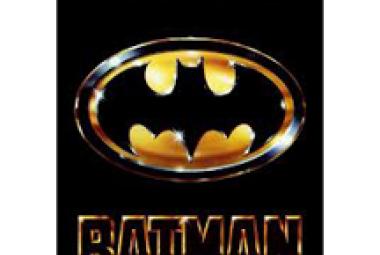Chester Burnett (June 10, 1910 – January 10, 1976), known as Howlin’ Wolf, was an African-American Chicago blues singer, guitarist and harmonica player, from Mississippi. With a booming voice and looming physical presence, he is one of the best-known Chicago blues artists. Musician and critic Cub Koda noted: “No one could match Howlin’ Wolf for the singular ability to rock the house down to the foundation while simultaneously scaring its patrons out of their wits”. Producer Sam Phillips added: “When I heard Howlin’ Wolf, I said, ‘This is for me. This is where the soul of man never dies.’” Several of his songs, such as “Smokestack Lightnin’”, “Back Door Man”, “Killing Floor”, and “Spoonful” have become blues and blues rock standards. (More from Wikipedia)
The very earliest power chords are credited to 1950’s bluesmen. Music historian Robert Palmer (not the same man as the 1980’s singer named Robert Palmer by the way) cites Willie Johnson (on Howlin’ Wolf’s “How Many More Years” that was recorded in 1951) and Pat Hare (on James Cotton’s “Cotton Crop Blues” that was recorded in 1954). If the name of the former song rings a bell, you are likely remembering “How Many More Times”, the last and longest track on Led Zeppelin’s 1969 debut album, Led Zeppelin. Under his real name, Chester Burnett, Howlin’ Wolf got a songwriting credit on later editions of the album. Anyway, the Brits liked what they heard and launched the British Invasion, and the rest is history.
Whether or not Link Wray heard these records and got the idea has not been established as far as I know.
(February 2013)
* * *
As with many of the British Invasion bands, the Yardbirds initially played American R&B and blues songs rather than their own compositions. As reported in Wikipedia, during their days at the Crawdaddy Club: “They drew their repertoire from the Chicago blues of Howlin’ Wolf, Muddy Waters, Bo Diddley, Sonny Boy Williamson II, and Elmore James, including ‘Smokestack Lightning’, ‘Good Morning Little School Girl’, ‘Boom Boom’, ‘I Wish You Would’, ‘Rollin’ and Tumblin’’ and ‘I’m a Man’.” In fact, Eric Clapton left the Yardbirds in March 1965 as a protest when the band finally got a hit single with a song that did not come from this milieu, “For Your Love” (written by Graham Gouldman, later a member of 10cc).
* * *
It wasn’t just the hits though; their album tracks also sound terrific, but it is as a live band that the Yardbirds truly cook. On my first Yardbirds album, The Yardbirds’ Greatest Hits, one live track was included, a scorching cover of Howlin’ Wolf’s “Smokestack Lightning”; as much as I loved the hit songs that made up most of the tracks, it quickly became one of my favorite songs on the album. “Smokestack Lightning” was taken from the band’s first (British) album, Five Live Yardbirds, described by Allmusic as “the first important – indeed, essential – live album to come out of the 1960’s British rock & roll boom”. And how many rock bands have the guts to put out a concert album as their debut release? Five Live Yardbirds wasn’t released in the U.S. until a CD finally came out in the 1980’s, although one side of Having a Rave up with the Yardbirds was composed of four songs from the album.
(May 2014)
* * *
The Jewish Business News post mentioned above also notes that Led Zeppelin’s case regarding Spirit’s claim that the opening chords for “Stairway to Heaven” were lifted from their 1968 instrumental song “Taurus”, is harmed by past copyright troubles: “[Led Zeppelin was] forced to emend credits for ‘Whole Lotta Love’ and ‘Babe, I’m Gonna Leave You’ as well as settling a suit over ‘Dazed and Confused’.” Not only that, I have written in the past about “How Many More Times” on Led Zeppelin, where the band had to show a writing credit for Howlin’ Wolf, who had written “How Many More Years” previously.
(November 2014)
* * *















